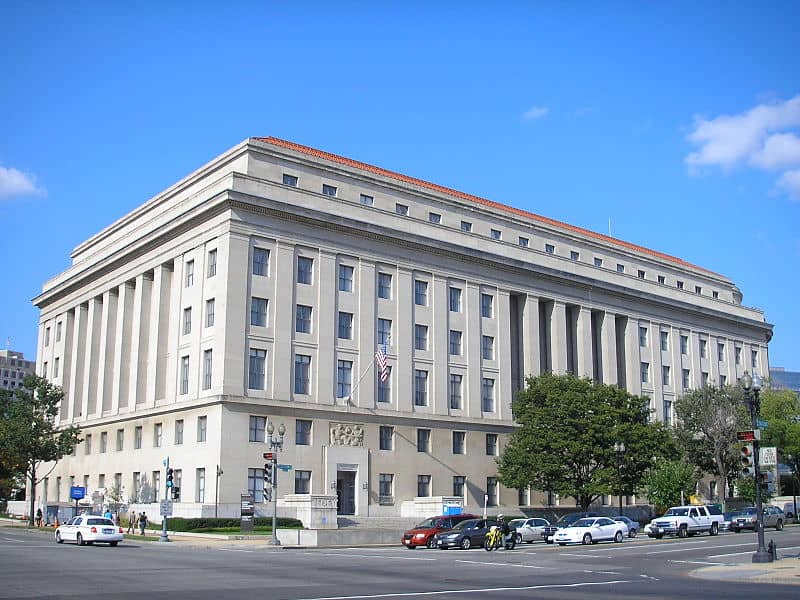Edison Electric Institute Caught Secretly Working To Influence FTC Solar Workshop

Rep. Yvette Clarke, a member of the Congressional Progressive Caucus, has a record of standing up to the fossil fuel industry in Congress. She has a 92% lifetime rating from the League of Conservation Voters, and a 100% rating in 2015.
Why, then, did Politico Pro report (subscription needed) this week that Rep. Clarke sent a letter in her name, on her letterhead, to the Federal Trade Commission that was ghostwritten by the Edison Electric Institute (EEI), the trade group for the investor-owned utilities which are the biggest climate polluters in the country?
The letter, posted and annotated below, insinuates that rooftop solar companies are ripping off customers and goes on to ask for greater oversight from the FTC, which is hosting a workshop on June 21 on solar distributed generation and is currently accepting comments on the issue.
Politico’s Esther Whieldon reports that metadata on the file indicates that Rep. Clarke’s letter had been written by EEI’s Governmental Relations Director Eric Grey.
To understand why Rep. Clarke might pass along a letter taking a swipe at rooftop solar power, written by EEI in her name, it’s important to understand just why the big electric companies that comprise EEI are so terrified of rooftop solar.
The utilities that EEI represents make their money by building stuff: power plants, transmission lines, substations, etc. Every time they spend money building electric infrastructure, those utilities get to charge the cost to ratepayers, along with a handsome profit. But to justify building those power plants and electric lines, they need to keep selling more and more electricity.
If, however, people are increasingly installing their own rooftop solar panels on their houses and businesses, then utilities don’t get to build new plants and wires, and they also collect far less money from the people who are going solar. All of this presents an existential threat to the utility industry, something EEI first recognized at private meetings in 2012 when it warned that the booming distributed solar economy could lead to utilities’ “potential obsolescence.” The trade group responded with force, crafting an action plan to attack key policies that enable distributed solar, like net metering, by influencing state legislators and utility regulators.
Rather than adapting to these newly cheap forms of distributed solar power and innovating new business models, investor-owned utilities have went to war. EEI has waged a misleading campaign to attack distributed solar power on the basis that it is bad for low-income ratepayers and specifically for communities of color. That’s not true: distributed solar power provides a benefit to all customers, including low-income ratepayers, for whom the existing energy system isn’t exactly working out so great. (For more on the massive potential benefits that distributed solar energy presents to communities of color, and what must happen to realize those opportunities, see the NAACP’s excellent Just Energy report).
Those facts haven’t stopped EEI from believing that the “solar is bad for the poor” argument makes for good politics. EEI has focused its efforts on groups like the Congressional Black Caucus, to which it has contributed $155,000 between 2008 and 2014. Rep. Clarke is a member of the CBC, and EEI’s attempt to put words in her mouth likely fits into that plan.
The EEI letter passed through Rep. Clarke’s hands makes some interesting claims. One odd claims it makes is that customers could be at risk if regulators change policies in ways that hurt the economics of rooftop solar power. It’s deeply ironic for EEI to issue that warning. The policy changes in question include demand fees and fixed charges for solar customers, or reduced net metering payments. These are the very changes that EEI, and many of its member utilities, are themselves requesting from state regulators and legislators. The utility industry is essentially saying “rooftop solar could be less economic than advertised if rate structures change” … while simultaneously fighting for those very changes. That argument makes it clear why EEI would prefer to have the letter in Rep. Clarke’s name and not their own.
There are surely examples of solar companies who have not done right by their customers, as is true for any industry, and consumer protection agencies are perfectly justified in examining that topic (though the FTC deserves to know whether the letters they’re receiving are from a member of Congress or an industry with a vested agenda). Generally speaking, however, rooftop solar companies are compelled by the fact that they’re competing bitterly with one another to offer the best deals possible to consumers. In that light, it’s not surprising that industry leaders at SolarCity and the Solar Energy Industries Alliance have acted aggressively to ensure that they’re protecting customers. The same healthy competitive forces are not in play for regulated utilities, whose monopolies allow them to hold their customers captive and increase rates, sometimes for things like nuclear plants they never actually build (Duke Energy), or “clean coal” boondoggles (Southern Company).
For EEI, the letter is a slick way of passing off utilities’ case against rooftop solar power as coming from a progressive member of congress, which the FTC would likely take much more seriously than if they were presented in utilities’ own name. Rep. Clarke and her staff should be more discerning in whose bidding they are doing. She has too long a record of environmental advocacy to let herself be used as a pawn in a very cynical game that the nation’s biggest polluters are playing.



